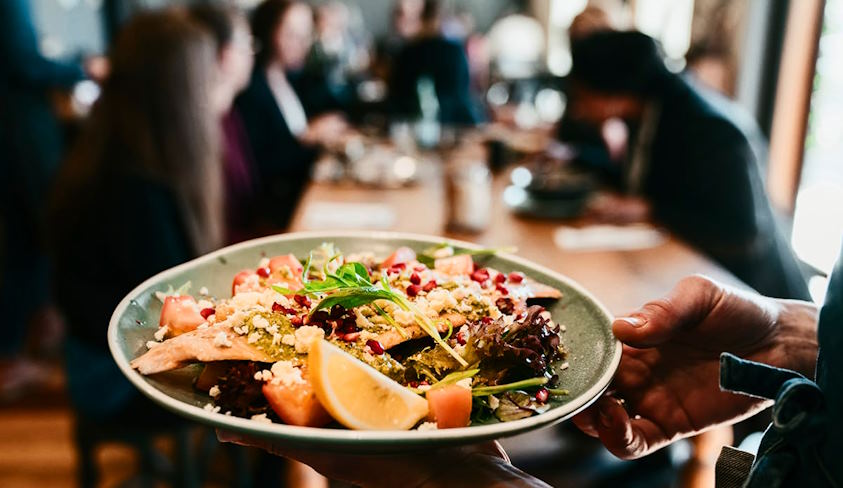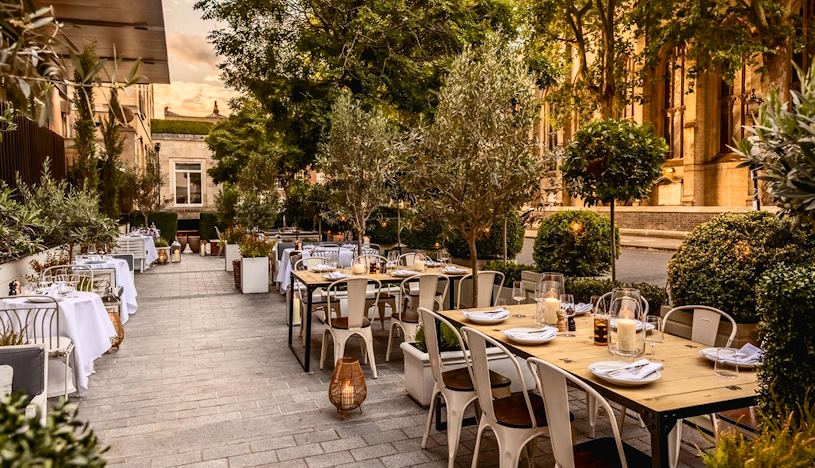Culinary heritage, encompassing traditional recipes, cooking techniques, and distinct flavors, holds a remarkable significance in preserving our cultural identity and fostering a sense of connection with the past. It serves as a gateway to our ancestors’ traditions, reflecting their values, beliefs, and unique regional characteristics. While the preservation of culinary heritage is a collective responsibility, restaurants play a vital role in safeguarding these culinary treasures. As culinary ambassadors and guardians of tradition, restaurants not only serve as custodians of traditional recipes but also contribute to cultural exchange, support local farmers, and nurture culinary education.
Restaurants as Guardians of Traditional Recipes
Traditional recipes as a reflection of cultural identity:
Traditional recipes are not merely a collection of ingredients and instructions; they are a profound reflection of a community’s cultural identity. Passed down through generations, these recipes carry stories, traditions, and a deep connection to history. They embody the flavors and techniques that have shaped a region’s culinary heritage, preserving its unique identity. However, with the fast-paced nature of modern life and the influence of globalized food trends, traditional recipes often face the risk of fading into obscurity.
Challenges in preserving traditional recipes:
Preserving traditional recipes poses several challenges. One significant challenge is the lack of documentation and standardization. Many traditional recipes are transmitted orally, making them vulnerable to alteration or even loss. Additionally, the scarcity of skilled individuals who possess the knowledge and techniques required to recreate these recipes accurately adds to the challenge. Furthermore, changing consumer preferences and the pressure to innovate can create a demand for fusion or modernized versions of traditional dishes, potentially diluting their authenticity.

How restaurants can play a role in safeguarding and promoting traditional recipes:
Restaurants have a unique opportunity to serve as guardians of traditional recipes and contribute to their preservation. By incorporating traditional dishes into their menus, restaurants can provide a platform for these recipes to thrive. They can meticulously research, gather, and adapt traditional recipes, ensuring their authentic flavors are preserved. By promoting these dishes to their customers, restaurants can create awareness and appreciation for the culinary heritage they represent.
Moreover, restaurants can collaborate with local communities and cultural organizations to conduct research, document traditional recipes, and create archives for future reference. This proactive involvement helps preserve the historical and cultural significance of these recipes.
Furthermore, through chef collaborations and culinary events, restaurants can foster a sense of pride and nostalgia, encouraging dialogue and sharing of traditional recipes among chefs and diners. This exchange of knowledge not only ensures the longevity of traditional recipes but also sparks creativity and innovation in the culinary industry.
Restaurants as Cultural Ambassadors
Showcasing regional specialties and authentic flavors:
Restaurants hold the power to transport us to different corners of the world without leaving our seats. As cultural ambassadors, they have the unique ability to showcase regional specialties and authentic flavors, providing us with a glimpse into diverse culinary traditions. Whether it’s a vibrant Indian curry, a comforting Italian pasta dish, or a fiery Mexican salsa, restaurants bring the essence of a culture’s cuisine to our tables. By carefully sourcing ingredients and employing traditional cooking techniques, these establishments ensure that the flavors remain true to their origins, offering an immersive experience for diners.

Promoting cultural diversity and understanding through cuisine:
Cuisine has the remarkable ability to bridge gaps and foster understanding among people of different backgrounds. Restaurants play a vital role in promoting cultural diversity and fostering appreciation for different traditions. By offering menus that feature dishes from various cultures, they create opportunities for diners to explore new flavors and expand their culinary horizons. Through shared dining experiences, restaurants encourage conversations, spark curiosity, and break down barriers, fostering a sense of unity and respect for cultural differences.
Collaboration between restaurants and tourism industry to promote culinary heritage:
The collaboration between restaurants and the tourism industry is a powerful force in promoting culinary heritage. Restaurants serve as a gateway for tourists to experience the authentic flavors of a destination. They can partner with local tourism boards to develop food-focused itineraries, culinary tours, and cultural events that highlight regional specialties. By incorporating local ingredients, hosting cooking classes, and offering tasting menus that showcase traditional dishes, restaurants contribute to the preservation and promotion of a region’s culinary heritage. This collaboration not only boosts tourism but also creates economic opportunities for local communities, ensuring the sustainability of culinary traditions.





